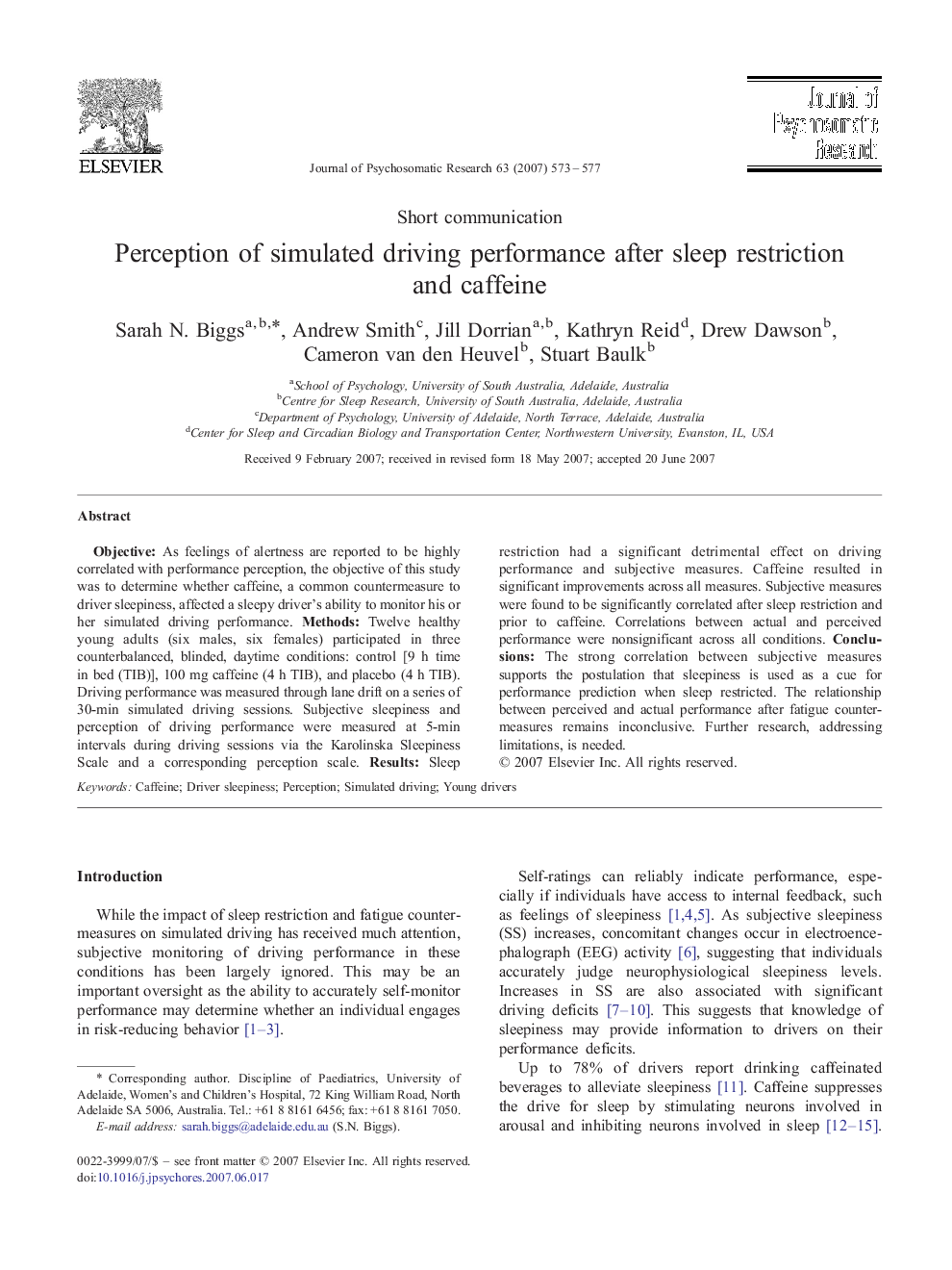| Article ID | Journal | Published Year | Pages | File Type |
|---|---|---|---|---|
| 950145 | Journal of Psychosomatic Research | 2007 | 5 Pages |
ObjectiveAs feelings of alertness are reported to be highly correlated with performance perception, the objective of this study was to determine whether caffeine, a common countermeasure to driver sleepiness, affected a sleepy driver's ability to monitor his or her simulated driving performance.MethodsTwelve healthy young adults (six males, six females) participated in three counterbalanced, blinded, daytime conditions: control [9 h time in bed (TIB)], 100 mg caffeine (4 h TIB), and placebo (4 h TIB). Driving performance was measured through lane drift on a series of 30-min simulated driving sessions. Subjective sleepiness and perception of driving performance were measured at 5-min intervals during driving sessions via the Karolinska Sleepiness Scale and a corresponding perception scale.ResultsSleep restriction had a significant detrimental effect on driving performance and subjective measures. Caffeine resulted in significant improvements across all measures. Subjective measures were found to be significantly correlated after sleep restriction and prior to caffeine. Correlations between actual and perceived performance were nonsignificant across all conditions.ConclusionsThe strong correlation between subjective measures supports the postulation that sleepiness is used as a cue for performance prediction when sleep restricted. The relationship between perceived and actual performance after fatigue countermeasures remains inconclusive. Further research, addressing limitations, is needed.
